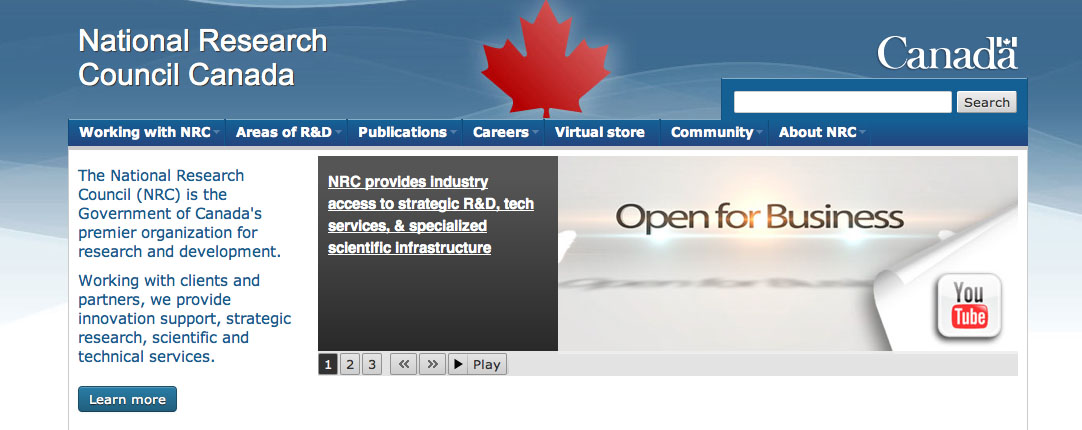How would you like to get a gift from your employer? Last year the president of the National Research Council gave each of his more than 4,000 employees a $3 gift certificate at Tim Hortons. Offered in recognition of professional contribution to the NRC, Canadian Press reported 65 laid-off workers were naturally insulted getting the voucher for coffee and a doughnut on what turned out to be their last day on the job.
The clown who thought up this promotion is in charge of an organization that spends nearly one billion dollars a year. Founded in 1916, the NRC just got a makeover. Now its public dollars are to go to fund private business ventures. Basic research is being eliminated.
Publicly available research is important. Since no one knows where discoveries or advances in knowledge will lead, the entire scientific community needs access to new research. There is no other way to maximize potential societal benefits. Learning is cumulative, innovative thinking flows from research building on public research.
Now with the privatization of research findings, discoveries and knowledge become industrial secrets, unavailable to Canadians who have paid for it, and lost to other scientists.
Appointed NRC president three years ago by Stephen Harper, John McDougall does not have a PhD, has never published a scientific paper, or received a research grant. His qualifications for the job are a civil engineering degree that he turned into a job with Esso as a petroleum engineer.
McDougall did previously head the Alberta Research Council where his cost-cutting agenda mirrors what he has been doing at NRC. According to Mediaculpa, he warned that bringing private sector-demanded changes to the NRC meant there would be “roadkill.”
Mediaculpa reported extensively on McDougall. Three elements stand out. He wants to make genetically modified wheat a priority for the new look NRC, this despite European Union directives stating GMO wheat could not be sold in its 27 member countries.
The NRC president is on record as saying greenhouse gases were “an untapped resource already being produced” (you cannot make this type of comment up). By extension, global warming must represent an opportunity to be exploited.
As a private investor, McDougall put money into projects surrounding carbon capture that he is now directing NRC to make a priority. Giant conflict of interest considerations seem no barrier to the Conservative appointee.
McDougall does share views with his fellow Albertan, Stephen Harper. The NRC president described government spending on health, education and social services as money going into “black holes.”
When Stephen Harper became prime minister he arranged to have Arthur Carty, the government science adviser, transferred from an inner circle position at the Privy Council to the Industry Department. Carty resigned in protest. The prime minister pretended his departure was normal retirement.
In 2009, over 2,250 scholars and researchers signed a letter protesting cuts to basic research funding through the three main federal granting councils. In a year when the Conservative budget reflected agreement with the opposition parties to boost government spending in order to fight recession, and with a new American president promising to double research spending, Harper singled out science for spending cuts.
Say one thing for the Conservatives, they have provoked a series of social protests from research professionals. Major campaigns are underway such as Get Science Right, and Canada’s Past Matters. The Climate Action Network protests in favour of evidence-based policy, Democracy Watch calls on the Conservatives to Stop Muzzling Scientists.
As yet there is no sign the quietism traditionally practiced by university administrations even in the face of severe cutbacks (such as occurred in Ontario under Harris) is being disturbed by the corporate giveaway programs that replace science-driven research.
Conservative distrust of scientific knowledge was evident under Mulroney who abolished the Science Council of Canada (along with a series of other research bodies like the Economic Council of Canada, and the Institute on Peace and Security).
Harper’s science policy is to continue cutbacks to grants for basic science, and the new NRC mandate is to vacate the field, yet Canada ranks fourth in the world in publishing basic science findings in peer-reviewed publications (science starts with peer review).
The Harper government punishes its winners because it claims Canada performs poorly when it comes to registering scientific patents. The so-called solution is to wind down basic science, and hand over scientific resources to companies.
Instead of promoting research and development the government solution encourages corporations to outsource it to NRC. Not only does basic science lose, applied industrial research by private companies is transferred to the NRC instead of being done in-house.
The reason Canada lags in patents and intellectual property has been well known and recognized for decades. Foreign ownership is higher in Canada than in comparable advanced countries, significantly higher. Instead of adopting industrial policy measures widely discussed 40 years ago, in the 1980s, Canada pursued free trade deals that forbid measures favouring domestic industry.
Apart from a few aero-spatial companies that grant world product mandates to Canadian-owned subsidiaries, corporations keep research at head office, and outsource donkey work. Privatizing the NRC is not going to change the industrial structure of Canada.
Duncan Cameron is the president of rabble.ca and writes a weekly column on politics and current affairs.
Photo: Douglas Sprott/flickr



